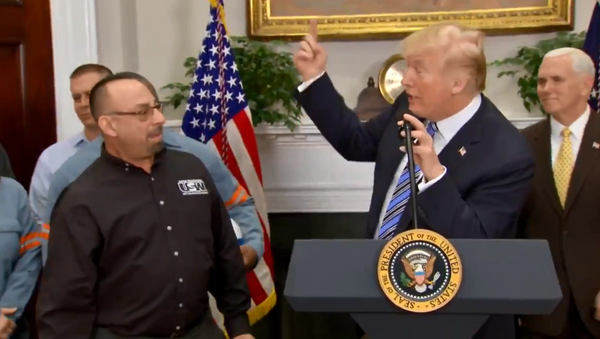According to a notification issued by India’s Ministry of Finance on Saturday, an increase in customs duties on 28 US products that the South Asian country has been eying but delayed for the past two years in anticipation of bilateral talks, became effective on Sunday.
Looks like India is finally pulling the trigger on its tariff retaliation against the US Section 232 tariffs:https://t.co/O9VeuQMVUd pic.twitter.com/sQYxsawfCB
— Scott Lincicome (@scottlincicome) 15 июня 2019 г.
The document, which has been published in the Gazette of India, the government’s authorised legal journal, is a redacted version of a notification from 30 June 2017, stating that the move is wholly in “the public interest”.
The list of products in question includes the following items among others “originating in the US” (import hikes of some are specified in brackets):
• almonds (from 30% to 120% )
• walnuts (from 30% to 70%)
• chickpeas (from 30% to 70%)
• Bengal gram, or chana (30% to 70%)
• masur dalf (from 30% to 70%)
• lentils (from 30% to 40%)
• boric acid
• binders for foundry moulds (hiked to 7.5 %)
• reagents (increased to 10%)
• certain kinds of nuts
• iron products
• steel goods
• apples
• pears
• flat rolled products of stainless steel,
• alloy steel, tube and pipe fittings
• screws, bolts, and rivets.
The list initially included 29 items, but India has removed artemia, a sort of brine shrimp - the production of which is monopolised by a number of US companies, including Artemia International LLC.
Long overdue move.
— Saurav Jha (@SJha1618) 14 июня 2019 г.
India to impose retaliatory tariff on 29 US items from June 16 https://t.co/UfQDzhOTMP
Per the website of the US Trade Representative, India is currently the US’ 9th largest trading partner with $87.5 billion in total mutual trade of goods in 2018, with goods imports from India prevailing over exports and reaching $54.4 billion last year, which is up 11.9% ($5.8 billion) from 2017, and up 111.7% since 2008.
According to NDTV, due to the new tariffs, India would get about $217 million in additional revenue from the revised imports, as the move will hurt American exporters required to pay higher duties.
The increase in tariffs comes as a retaliatory move against the US introduction of 25 percent and 10 percent tariffs on imported steel and aluminium respectively, in March 2018.
As India is one of the major exporters of these goods to the US, Washington’s decision has revenue implications of about $240 million on Indian steel and aluminium products, prompting the country to denounce the move.


